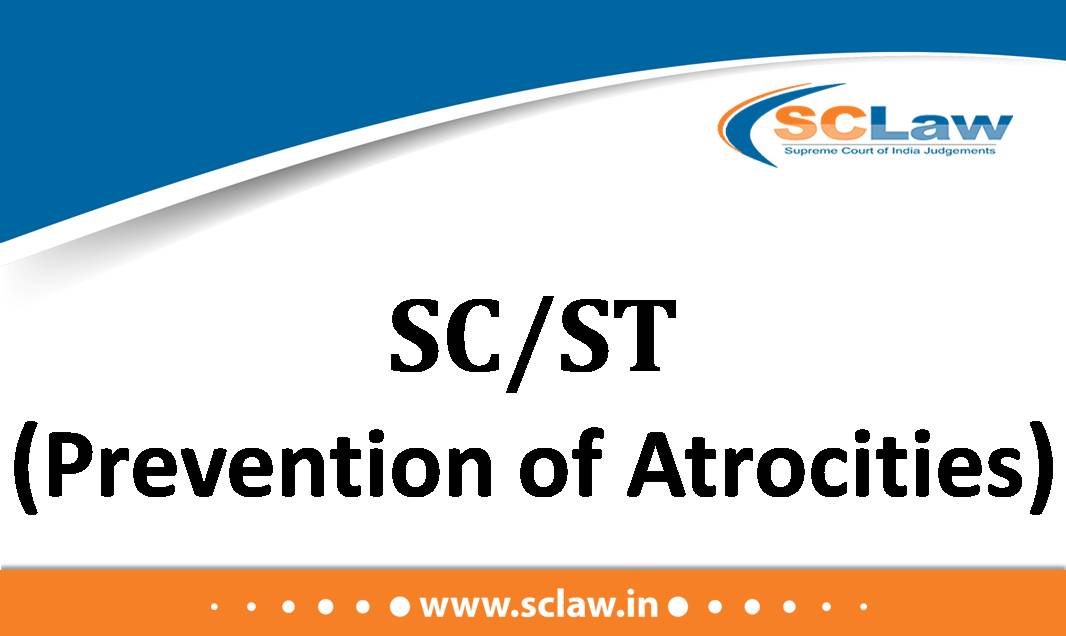Prosecution can produce inadvertently omitted documents with court permission as Section 173(5) CrPC is directory, authenticity issues are for trial.
2025 INSC 776 SUPREME COURT OF INDIA DIVISION BENCH SAMEER SANDHIR Vs. CENTRAL BUREAU OF INVESTIGATION ( Before : Abhay S. Oka and Augustine George Masih, JJ. ) Criminal Appeal…
Penal liability under Section 26 NGT Act for non-compliance requires proof of responsibility and power over the prohibited act, absent which penalty on individuals like the Mayor is unsustainable.
2025 INSC 775 SUPREME COURT OF INDIA DIVISION BENCH DR. I.S. TOMAR Vs. INVERTIS UNIVERSITY AND OTHERS ETC. ( Before : Abhay S. Oka and Augustine George Masih, JJ. )…
A plaint cannot be rejected under Order 7 Rule 11 CPC where triable issues of title and validity of sale deeds based on revoked authority and unregistered documents exist, or where multiple causes of action allow for survival of other reliefs.
2025 INSC 772 SUPREME COURT OF INDIA DIVISION BENCH VINOD INFRA DEVELOPERS LTD. Vs. MAHAVEER LUNIA AND OTHERS ( Before : J.B. Pardiwala and R. Mahadevan, JJ. ) Civil Appeal…
Nagaland Village and Area Councils Act, 1978 — Section 3 — Recognition of villages — State’s duty to consider objections fairly — Failure appears to have occurred in present case — Objections by appellant regarding ancestral land ownership not adequately considered by State authorities before recommending recognition — Court cannot definitively decide complex factual disputes regarding land ownership and customary practices — Appropriate for State authorities to resolve such issues.
SUPREME COURT OF INDIA DIVISION BENCH OLD JALUKAI VILLAGE COUNCIL Vs. KAKIHO VILLAGE AND OTHERS ( Before : J.B. Pardiwala and R. Mahadevan, JJ. ) Civil Appeal No. ….of 2025…
Lack of prima facie material to substantiate allegations of cheating, sexual intercourse under false promise of marriage or caste-based exploitation — Allowing prosecution would be abuse of process.
2025 INSC 790 SUPREME COURT OF INDIA DIVISION BENCH BATLANKI KESHAV (KESAVA) KUMAR ANURAG Vs. STATE OF TELANGANA AND ANOTHER ( Before : Vikram Nath and Sandeep Mehta, JJ. )…
Permanent Alimony — Basis for determination — Considerations include husband’s income, past earnings, financial disclosures, wife’s financial needs, standard of living during marriage, inflation, and wife’s continued reliance on maintenance.
2025 INSC 789 SUPREME COURT OF INDIA DIVISION BENCH RAKHI SADHUKHAN Vs. RAJA SADHUKHAN ( Before : Vikram Nath and Sandeep Mehta, JJ. ) Civil Appeal No. 10209 of 2024…
Considerations for cancellation — Principles are distinct from those for granting bail — Bail should not ordinarily be cancelled unless procured by fraud/misrepresentation, allegations are grave impacting society, release creates fear/terror, or accused may abscond/tamper with evidence — Where allegations are severe, shaking conscience of the Court, and there is an imminent likelihood of accused adversely affecting fair trial, bail is liable to be cancelled.
2025 INSC 788 SUPREME COURT OF INDIA DIVISION BENCH CENTRAL BUREAU OF INVESTIGATION Vs. SEKH JAMIR HOSSAIN AND OTHERS ( Before : Vikram Nath and Sandeep Mehta, JJ. ) Criminal…
Appellate court should decide on merits based on document interpretation when possible, rather than unnecessarily remanding, particularly when area and boundaries are consistent.
2025 INSC 771 SUPREME COURT OF INDIA DIVISION BENCH PETER AUGUSTINE Vs. K.V. XAVIER AND OTHERS ( Before : B.R. Gavai, CJI. and Augustine George Masih, J. ) Civil Appeal…
Determination of ‘change in law’ compensation and carrying cost at LPS rates is governed by PPA restitutionary principles, effective from the event date, requiring supplementary billing after competent forum adjudication.
2025 INSC 770 SUPREME COURT OF INDIA DIVISION BENCH JAIPUR VIDYUT VITRAN NIGAM LTD. AND OTHERS Vs. ADANI POWER RAJASTHAN LTD. AND ANOTHER ( Before : M. M. Sundresh and…
Fundamental right under Article 22(1) requires meaningful communication of valid arrest grounds for lawful detention, failure vitiates arrest.
2025 INSC 768 SUPREME COURT OF INDIA DIVISION BENCH KASIREDDY UPENDER REDDY Vs. STATE OF ANDHRA PRADESH AND OTHERS ( Before : J.B. Pardiwala and R. Mahadevan, JJ. ) Criminal…
















